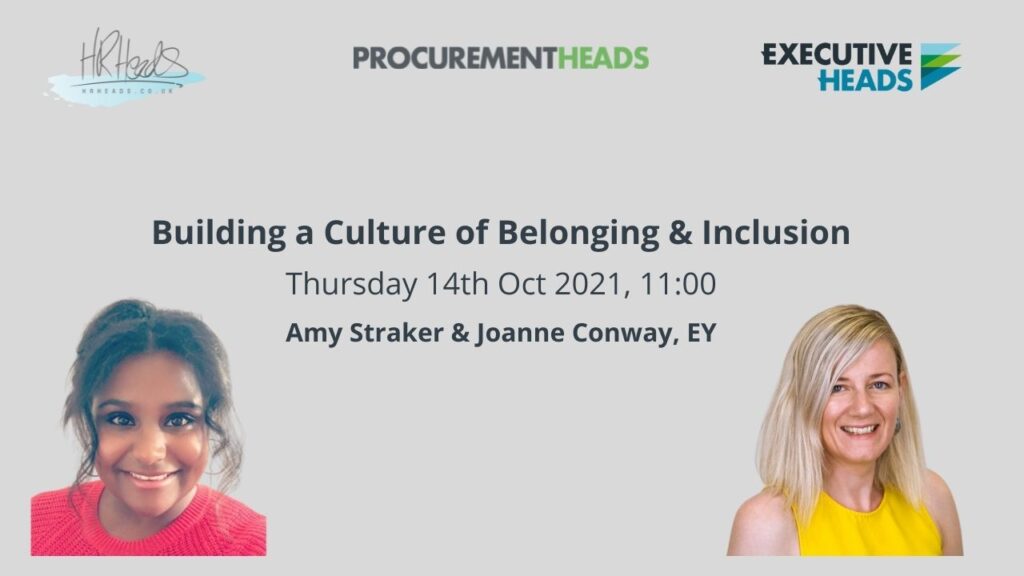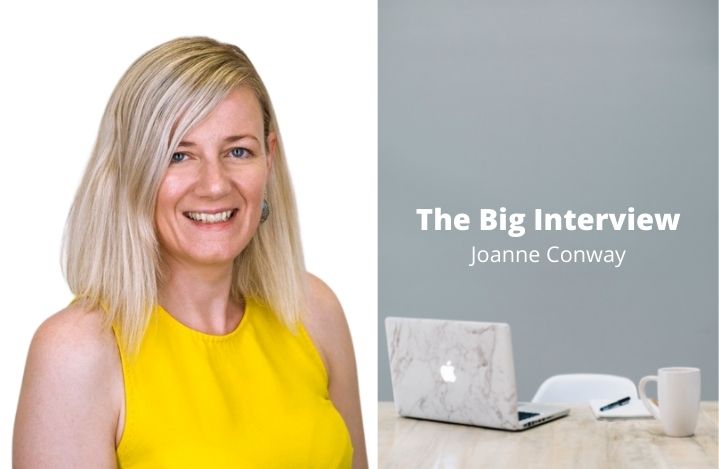Joanne Conway is proud to be listed on the Northern Power Women Future top 50 list and is the Deputy Head of Diversity & Inclusion for EY UK&I.
Joanne previously led the Global D&I strategy for EY and is an accredited facilitator in Inclusive Leadership. She completed a Masters in HR Management with a dissertation in Psychological Safety in minority groups. With a background in Finance and Psychology, she builds trusting relationships and focuses on outcome-driven results to build sustainable culture change.
In addition to her role at EY, Joanne is a part-time Associate Lecturer with the University of Salford. Joanne works hard to champion diverse talent, ensuring all voices are heard and is passionate in her role as a mentor internally at EY and externally.
In advance of co-hosting our Building a Culture of Belonging & Inclusion event on 14th October, Joanne spoke with Jen Gaster on how she got into E, D & I and what advice she would give someone wanting to specialise in this area.
How did you get into ED&I as a specialist and why are you so passionate about the area?
I began my career in customer service roles before moving into finance at EY and always had a desire to work in a more people-centred role.
From personal experience I had a particular interest and passion in social mobility, having grown up on council estates and leaving school with just my GCSEs, I had a real insight into some of the barriers and stereotypes that existed for people with backgrounds like mine.
I started volunteering with a charity for young offenders and Saint Vincent De Paul, which worked with some of Ireland’s most underrepresented groups, and at the same time started to find ways at EY to take on additional responsibilities to my core role that gave me people experience.
In 2016 I was successful in my first pure talent role as a D&I lead at EY, responsible for creating a D&I strategy for our global population, which I did for three years before taking on my existing role as Deputy D&I Head of EY UK&I where I am responsible for activating our D&I strategy for our 15,000 employees across the UK.
What are you most proud of achieving in this space?
For the last 18 months at EY, we have been focusing on creating a culture of equality, recognising that we must continue the important work we have been doing on interventions and levelling the playing field and at the same time address the deeply rooted behaviours to create sustainable change.
To suggest a common framework relevant to all of EY, we have developed a model called the culture change continuum. It articulates the progressive development required for our organisation to build a culture where all differences matter, considering that teams across EY are already at different stages of the continuum.
At the same time, it guides individuals through a path of personal development to lead and team inclusively.
The reason that I am most proud of this is that we have listened to our people and created something practical and tangible that allows individuals and teams to gain confidence and take accountability for the role they play in our D&I ambitions.
We know it is the everyday behaviours, our peoples lived experiences that matter and creating a toolkit that brings people on that journey of self-reflection, through to action and accountability is incredibly powerful.
Change must be leader-led and allies must play their part.
How can individuals practically affect a change in a business to influence ED&I and make a difference?
Understand what is in your sphere of influence, depending on your role and responsibilities you will have different opportunities to influence.
Remember there is no silver bullet, not one big solution, it is often the everyday behaviours, actions we take, decisions we make or don’t that make a difference in the ED&I space.
Individually we can make a difference for a significant collective impact.
Some practical suggestions include:
- Consider who do you coach, mentor and sponsor? We need to do to ensure that we are not letting insider-outsider dynamics impact who we invest time in. Be open to, recognise and incorporate new approaches and ideas
- Create a “speak up” culture, call out behaviours that can make people feel excluded. Doing so means that everyone’s voice is heard, and they feel that their contribution matters.
What advice would you give to someone who wants to specialise in ED&I in the future?
Understand what key skills and experiences are required for the role, for example, change and project management, influencing skills, resilience, stakeholder management, relationship building, so you can highlight the areas where you have these for any potential roles and/or help identify any gaps that you can start to work on to help you land that dream role!
Connect and follow ED&I specialists on social media already in the space and sign up for newsletters, free webinars so you can learn and build relationships.
In an ideal world, ED&I should be embedded through every part of an organisation, find ways to bring that into your existing role to allow you to gain experience and demonstrate your capability in this space.
Join any networks in your organisation, they are a great way to broaden your knowledge and meet new people.


